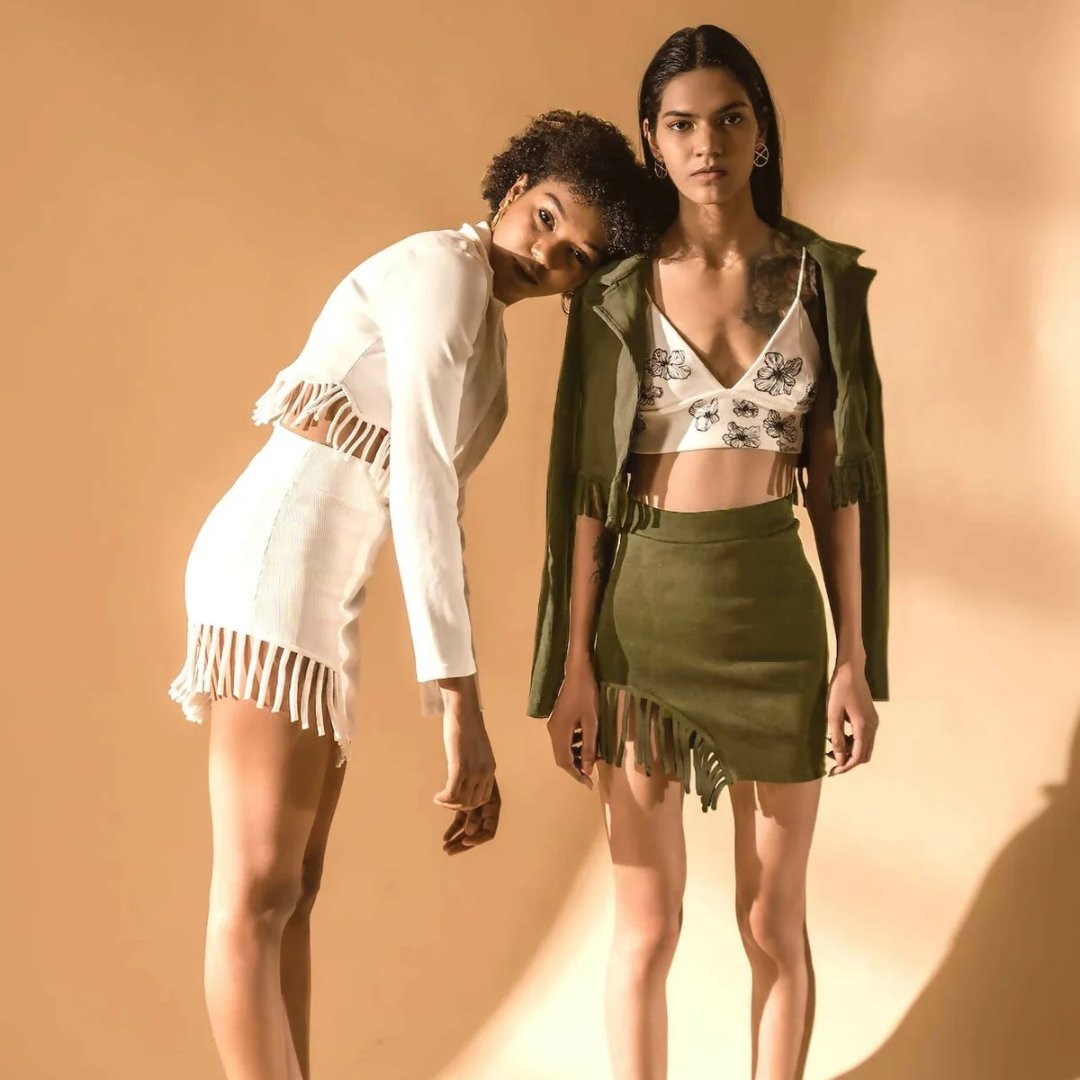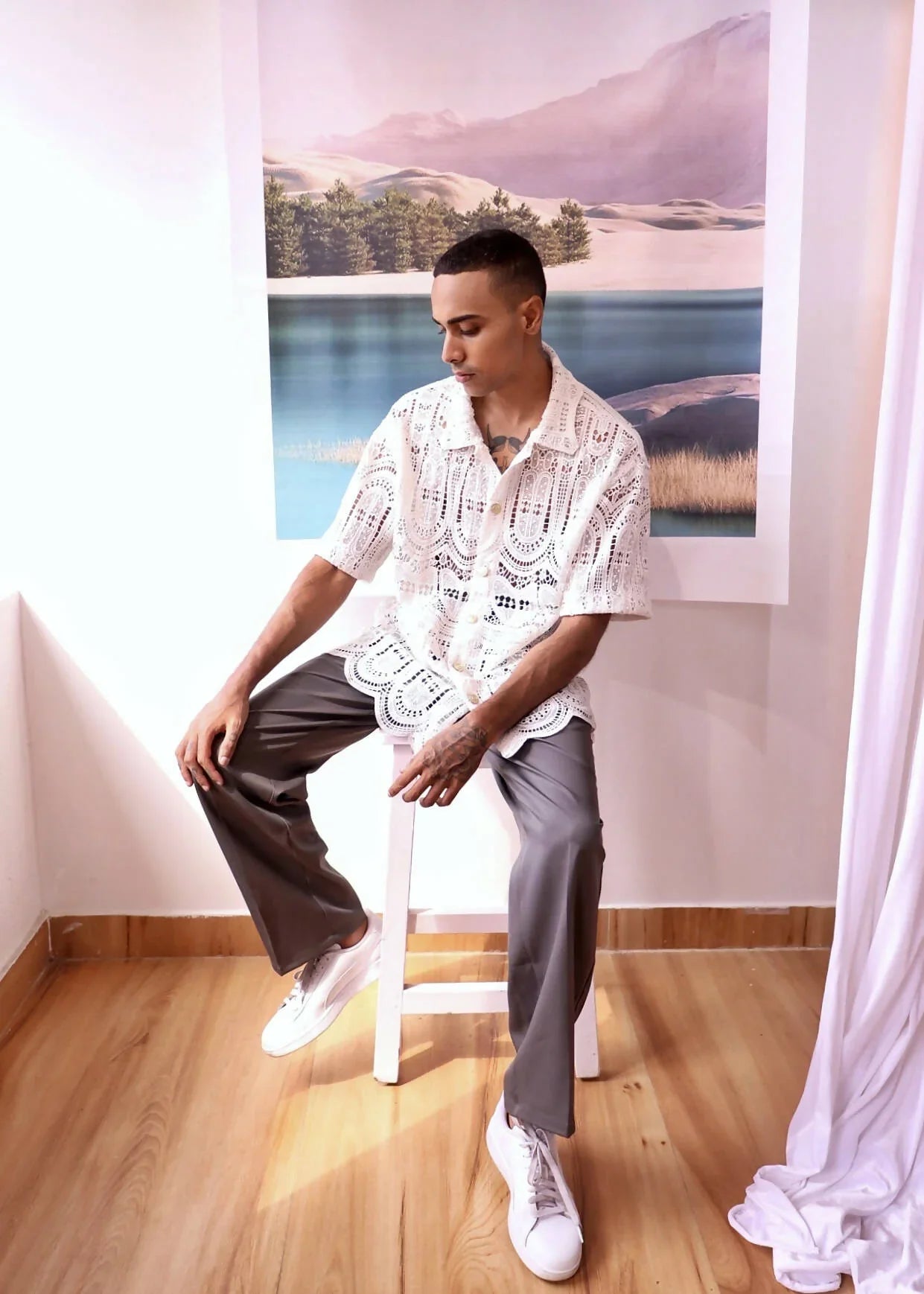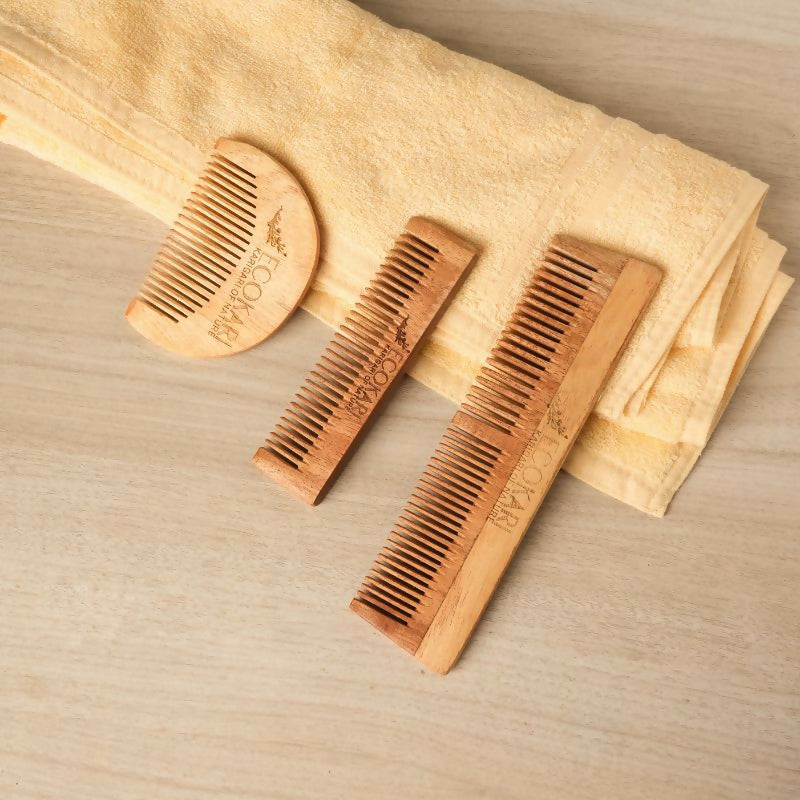A conversation with Stephanie Benedetto from Queen of Raw
About Queen of Raw:
Queen of Raw is a marketplace to buy and sell deadstock fabric using blockchain technology and machine learning that helps enterprises achieve a circular economy business model.
The founder, Stephanie Benedetto’s family has been in the fashion and textile business for over 100 years. As much as she liked the industry, she disliked the waste that was generated by manufacturing houses. She didn’t take the family route and went to Wall Street as a corporate attorney specialising in fashion technology and sustainability. After that she started a sustainable textiles manufacturing company where she invented new leather alternatives. While she was building that business, she saw first hand the massive amount of waste that was generated and decided to build a platform to minimise it.
For the #REFASHinNewYork month, we got a chance to have a conversation with Stephanie where she talks about her business, her vision for the brand and how this unique idea has been changing the way people are perceiving waste.

(Stephanie Benedetto, The founder of Queen of Raw)
Our conversation with Stephanie:
REFASH: Can you take us through how Queen of Raw works and how you integrated block chain technology?
Stephanie: Queen of Raw is a marketplace for everyone right from students to large enterprises, to buy and sell in real time unused raw materials. What we found was that for some of our enterprise customers had challenges because they manage most of their inventories on an excel spreadsheet or an old dated inventory management system and they don’t even know about the waste that they have. So we decided to use block chain for data integrity purposes to help businesses identify their waste so that we could then integrate it with their systems where they can click a button and sell their waste on our platform - quickly, easily and automated. That’s the idea.
R: It’s such an incredible platform. It must have taken you a long time to create the entire software?
S: Yes, absolutely. It has been an issue that my core team and I have been looking at, for over 5 years. We didn’t launch till 2018 but we had been working on the issue of waste. We’d been building the powerful tools and technology to be able to get it right for this community using all of our industry expertise to do that. It did take time, resources and money to do, but we believe that now the time is right. The world is waking up, not just to sustainability but to the issues that economically affect their businesses.
R: How has it been working with both the sides - the factories and the people who end up buying these unused textiles? Where does the challenge lie?
S: Interestingly, we have seen that buyers become sellers and sellers become buyers - that is the beauty of what we have built. When we launched the platform, we had buyers pouring in like crazy, people wanted access to these beautiful materials that they never had digital access to before. The challenge was exactly that. Unlocking that inventory, getting the right information out of the warehouses and getting it on to the platform - that’s what we built in the tools to specialise around.
R: What about pricing? How are the textiles priced on the platform?
S: The textiles on the platform are upto 60% cheaper than wholesale prices so the textiles are at a steep discount. This is deadstock, it’s costing factories money to sit in a warehouse where they’re paying to burn it or send it to landfill.
So for the sellers and the buyers who are using our tools, they can see in real time, the amount of water, toxins, energy and dollars that they’d save by buying and/or selling on our platform.
R: I believe that you must be the pioneers to create something like this? Is there anyone else doing this?
S: Not really, no. We do have the first mover advantage and we are proud and excited about it. There are now other players coming into this space - around blockchain enabled supply chain.
Queen of Raw has a podcast called "Material is your business" where they talk to women in their network to throw light upon how they built their businesses as well as their take on sustainability, future of technology, supply chain, fashion etc. It's an effort not only to help people learn about Queen of Raw but also foster collaborations within the community.
R: How easy is it for a retailer or a factory to start selling on the platform?
S: We have made it very quick and easy. They can do it from an app on their phone in seconds, they can take a picture of a product, drag and drop, verify it and upload it to our platform.
R: How do you check the authenticity of the textiles that are sold on the platform?
S: Not anyone and everyone can be on the platform. We have our own solutions that check and verify the parties that want to start selling on our platform and only then do their textiles get approved to be sold on the platform.
R: How do you reach out to more factories?
S: We have been very fortunate to have some incredible supporters. We have launched an org with NASA, Nike, Ikea & Dell. Wework is now an investor and Ashton Kutcher supported us in a global competition that we won. The support has been really helping us to grow this globally and bring the good players on to our platform.

(Queen of Raw X WeWork Creator Awards)
R: How is it like being in a place like New York with a startup like yours? Does it help?
S: New York is absolutely amazing. Its my home and my team’s home, having the garment district and my family roots here, I feel very tied to it. There has been a very strong community of Made in New York in fashion and manufacturing and you would be surprised by how much inventory / unused textile sit in the United States as well. Ofcourse, there’s a huge volume sitting around the world especially in Asian countries, we need a global solution to be able to touch all those touch points. Just so you have a number, the global textiles annual market is an $800 billion dollar market, of that 15% is waste. So that means $120 dollars worth of unused fabrics is sitting in the warehouses every single year.
R: What are some of the challenges you have faced building this platform?
S: Ofcourse, we are fortunate to be the first movers in this industry but when you are a first mover in something, you need to educate people about the sustainable benefits as well as the economic benefits and why this makes sense from a business perspective to adopt these principles, to be in a circular economy solution. I think now we are at the point where people understand it and they see the economic value and are willing to invest in this technology.
Currently, they are only available to people residing in the United States. However, if you write to them, they can facilitate international transactions as well. They will start selling globally very soon.
R: What is your vision for the brand?
S: I’m passionate about sustainability but at the end of the day I want us to get rid of the word "sustainability". This should be the way that good business is done in the future. We need modern tools and new business models to do things better, to have more transparency, more visibility, more traceability. I think it’s the future, i think that new generation is demanding it - I see the brands and retailers’ factories suffer if they don’t adopt it so I do see this as the future way that business is done. My real ultimate vision and dream is that we actually don't need a marketplace because we have been able to get everyone on our software and tools to minimise everyones waste so no one has any waste anymore. That’s the greatest solution to solve the world’s waste crisis.

Every T shirt you buy uses 700 gallons of water to produce and 700 gallons of water to wash in its lifetime. Also, read the label, know a little more about what you’re putting on your body and what is touching your skin 24 x 7 - its just as important as whats going inside your body.
R: What advice would you give to an entrepreneur who is just starting out on their journey?
S: I would say, don’t be afraid to put your idea out there, to challenge an old school way of doing things. Think about what the future could and should look like - it matters for you, for your children, for your future generations.
R: What is your favourite sustainable / upcycling / recycling brand to shop from?
S: I’m a big fan right now of platforms like thredUP where you can get the most high quality beautiful things at such a steep discount - things that are second hand but are still in great condition. I love the platform Real Real, as well as brands like Reformation, Eileen Fisher, RentTheRunway and their whole model of renting. All of them have different models and are doing different things but I definitely support all their models because they are all doing great things.
-
Here is the link to the website.
You can find them on Instagram here.
Photo credits: Queen of Raw







Leave a comment